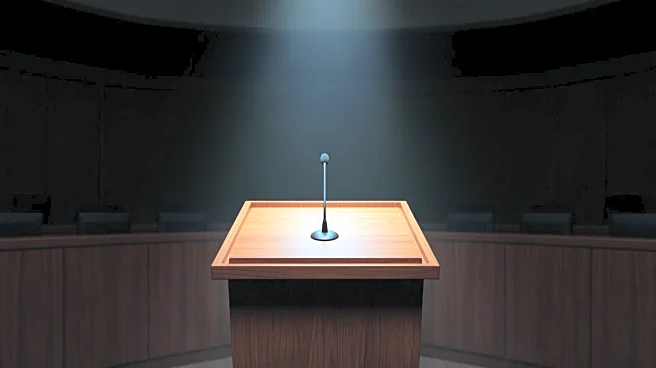What's Happening?
Following the conclusion of the Gaza war, Israeli Prime Minister Benjamin Netanyahu is facing increasing pressure to establish a state commission of inquiry into the events of October 7, 2023. Bereaved
families and survivors are demanding accountability for the security and intelligence failures that led to over 1,200 Israeli deaths and more than 250 kidnappings by Hamas. Despite public support for a state commission, Netanyahu has resisted, citing low trust in the Supreme Court, which would appoint the commission members. Instead, the government plans to form an 'independent' commission, with a ministerial committee set to recommend its mandate within 45 days.
Why It's Important?
The demand for a state commission of inquiry reflects broader concerns about government transparency and accountability in Israel. The decision to form an alternative commission could impact public trust in governmental processes and the judiciary. The outcome of this inquiry may influence political dynamics, especially with upcoming elections. The situation highlights the tension between the government and judiciary, affecting Israel's democratic institutions and public confidence. The bereaved families' protests underscore the societal demand for truth and justice, potentially shaping future policy and governance.
What's Next?
The ministerial committee's recommendations on the commission's mandate are expected within 45 days, potentially leading to further political debates. The October Council, representing bereaved families, plans continued demonstrations, maintaining pressure on the government. The inquiry's findings could influence public opinion and electoral outcomes, especially if perceived as insufficiently independent. The government's handling of this issue may affect its credibility and stability, with implications for Israel's domestic and international relations.
Beyond the Headlines
The resistance to a state commission of inquiry reflects deeper political struggles within Israel, particularly regarding the judiciary's role. Netanyahu's stance may be seen as an attempt to maintain control over the narrative and avoid personal accountability. The situation raises ethical questions about governance and the balance of power, potentially affecting Israel's democratic principles and international reputation.











